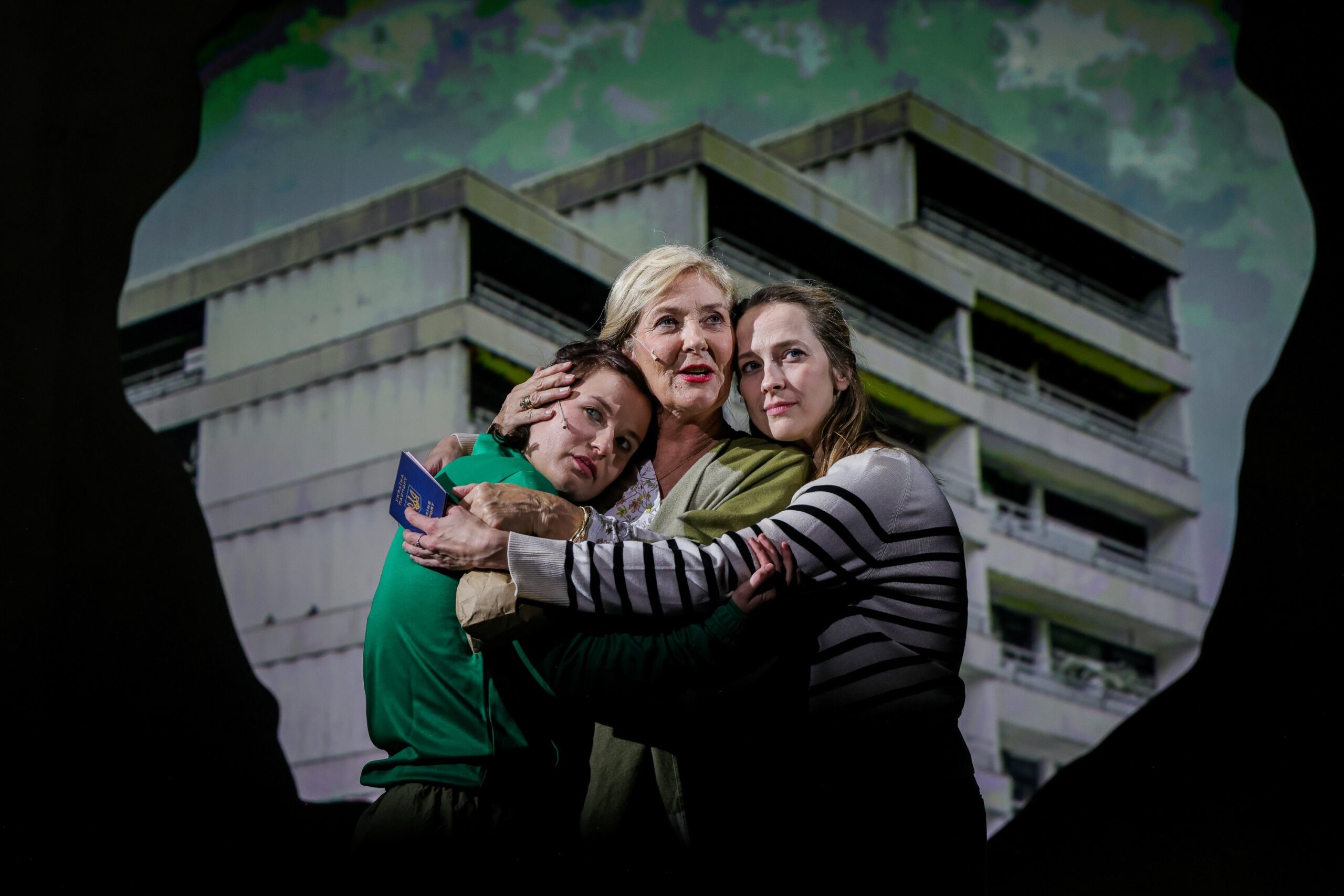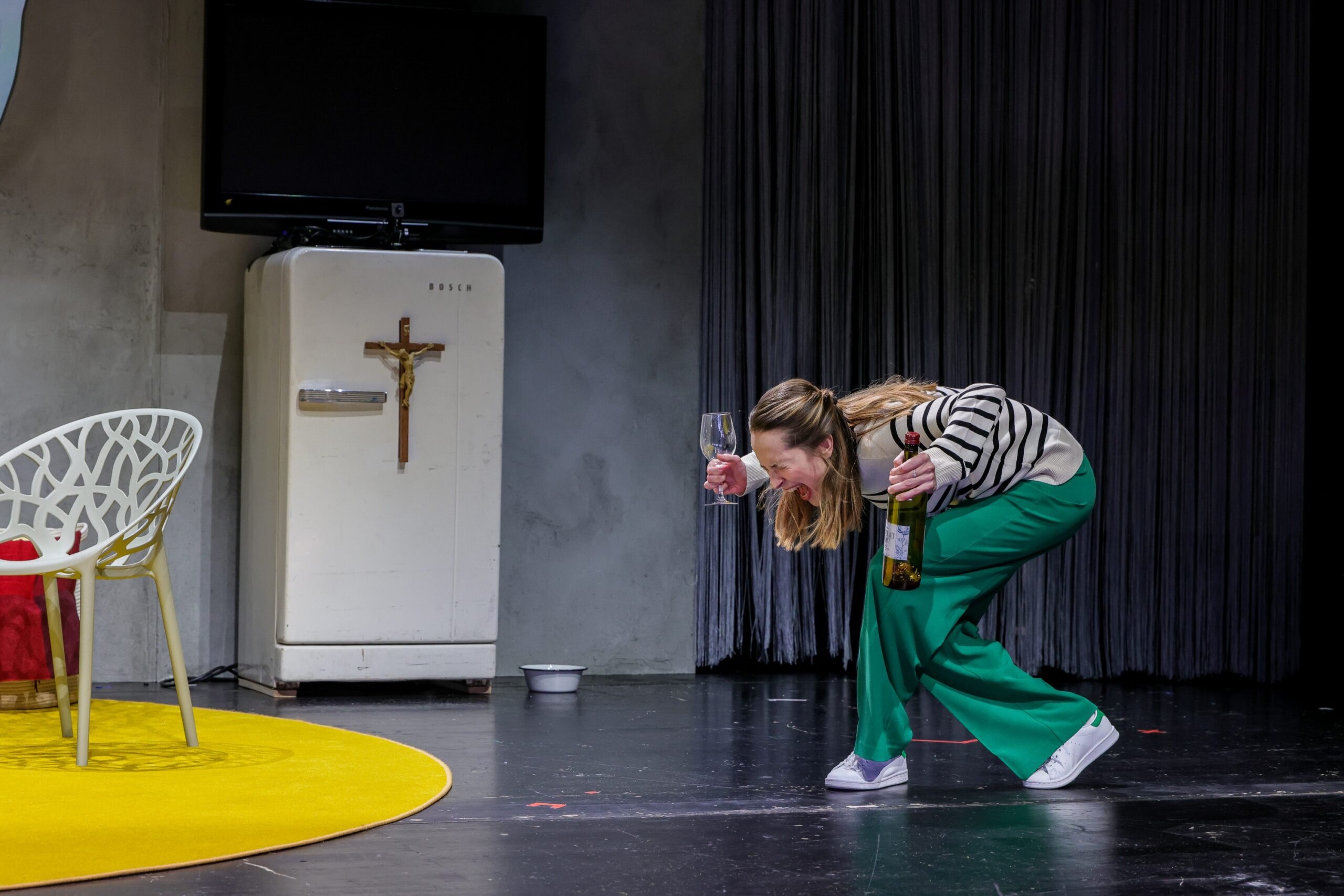Always in fear
Those who are not at war are far from safe in exile. This is what Natalka Vorozhbyt’s «Non-existent» tells with a family and three generations of women. The bitterly evil comedy about the difficult situation has now been staged by Marc Becker in Mainz.
«Light scenes against the background of war» reads the subtitle of «Non-existent», a play by the Ukrainian playwright Natalka Vorozhbyt, which was premiered in Essen in February and is now on stage at the Staatstheater Mainz. They are really light-footed, these scenes full of intimate, domestic themes.

Grandmother Marija (Iris Atzwanger), mother Orysja (Tanya Kargaeva), daughter Daryna (Leandra Enders): three refugee women in an improvised petty-bourgeois apartment. Sofa, refrigerator and crucifix (equipment for little money: Christina Kirk), somewhere in a «European country» that is easily recognized as Germany, as much as is forbidden here. In addition, Olaf Scholz (Anneke Gies) has a short appearance as God who gives up the weapons (but not too many).
It is a seemingly harmless, chamber play-like revue with no real plot arc that Vorozhbyt writes about the war of aggression against Ukraine. The women are a little insecure because they don’t understand everything the Germans say. They startle when there is a knock on the door, because probably someone wants to complain because they didn’t separate the garbage properly. They forget words that used to be quite commonplace, and learn new ones. They sing with schoolmates and chance acquaintances. And they are irritated by the self-centeredness of the Germans, who take their own everyday problems very seriously, while they only have sucked-out solidarity phrases left for the Ukrainians. But discrimination or even violence, as many other refugees experience, does not happen to this family.

That’s how it goes. Marc Becker stages the chamber play without much fuss, the cat hisses, the punches land, the Ukrainian actress Tanya Kargaeva provides the authentic Ukrainian pronunciation of the playwright, and after a hundred minutes without pause it is over again. Presumably, this stage-related restraint corresponds most closely to the spirit of the text template, which brings the unexcitedness to the fore in order to make the contrast with geopolitical reality harder.
But one had then wished for some substantive access, especially since the play, apart from its horrible urgency, deals with thematically relatively generic diaspora topics. At least accessibility is ensured: the performance is completely subtitled in Ukrainian.
